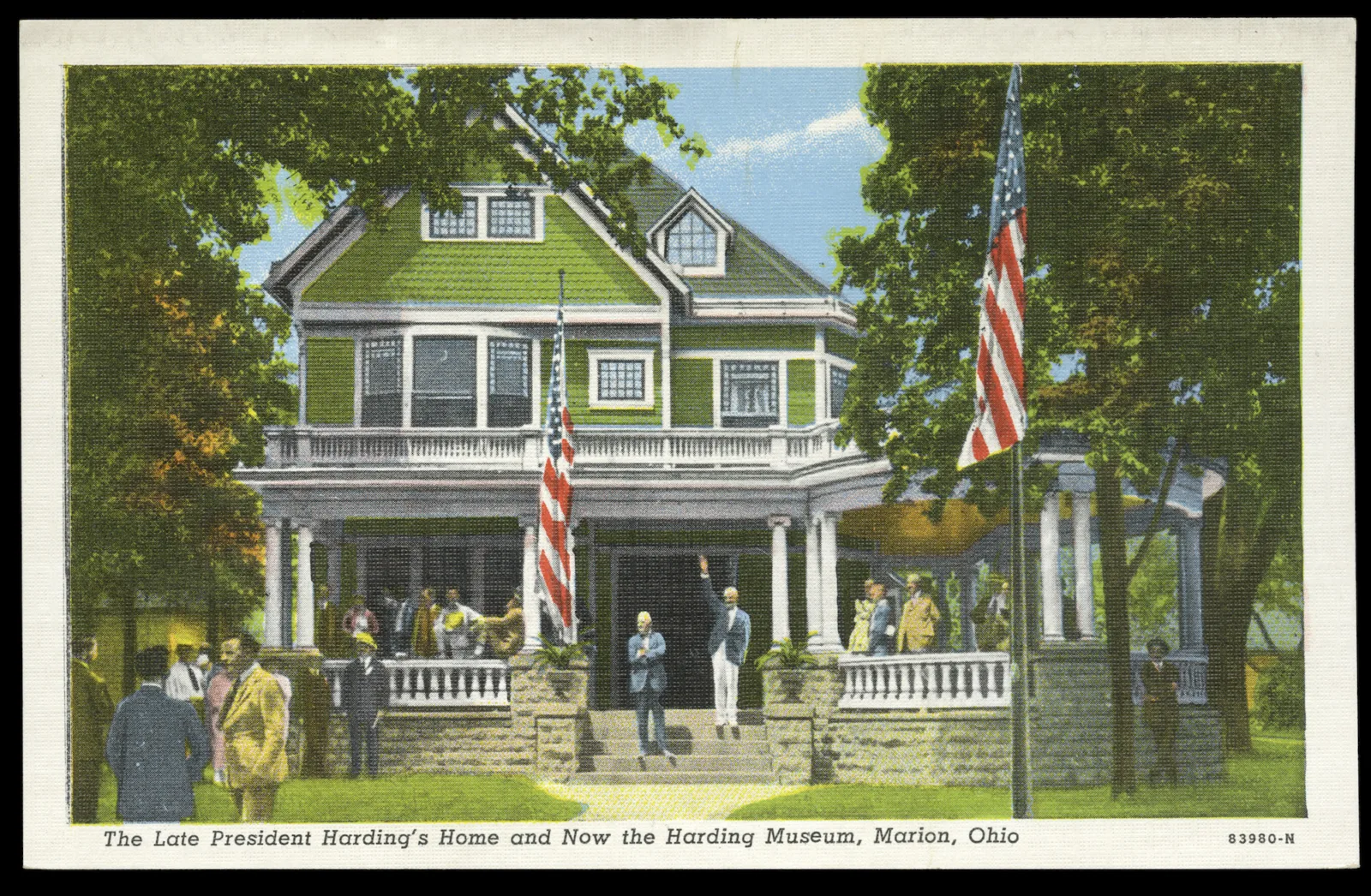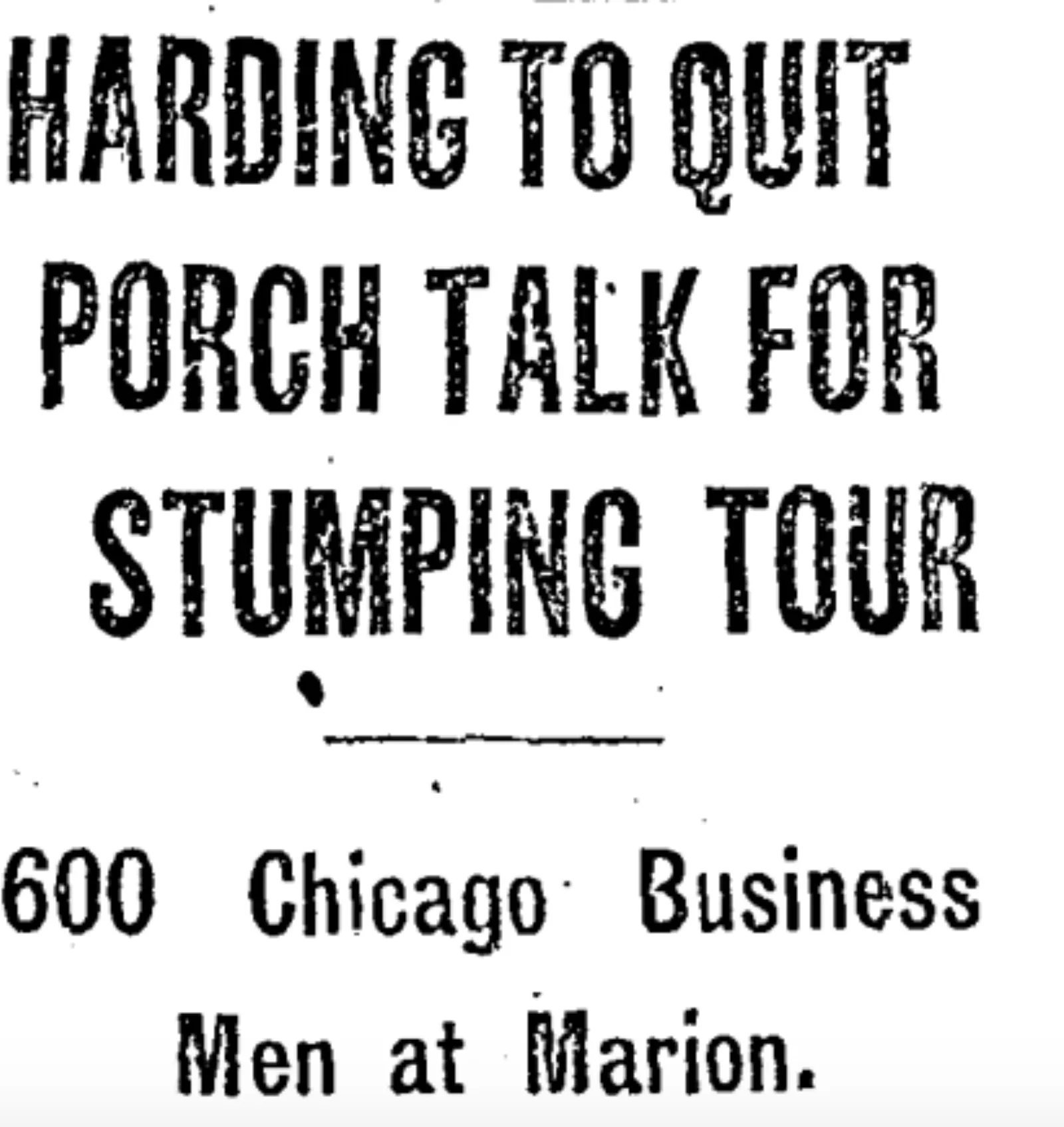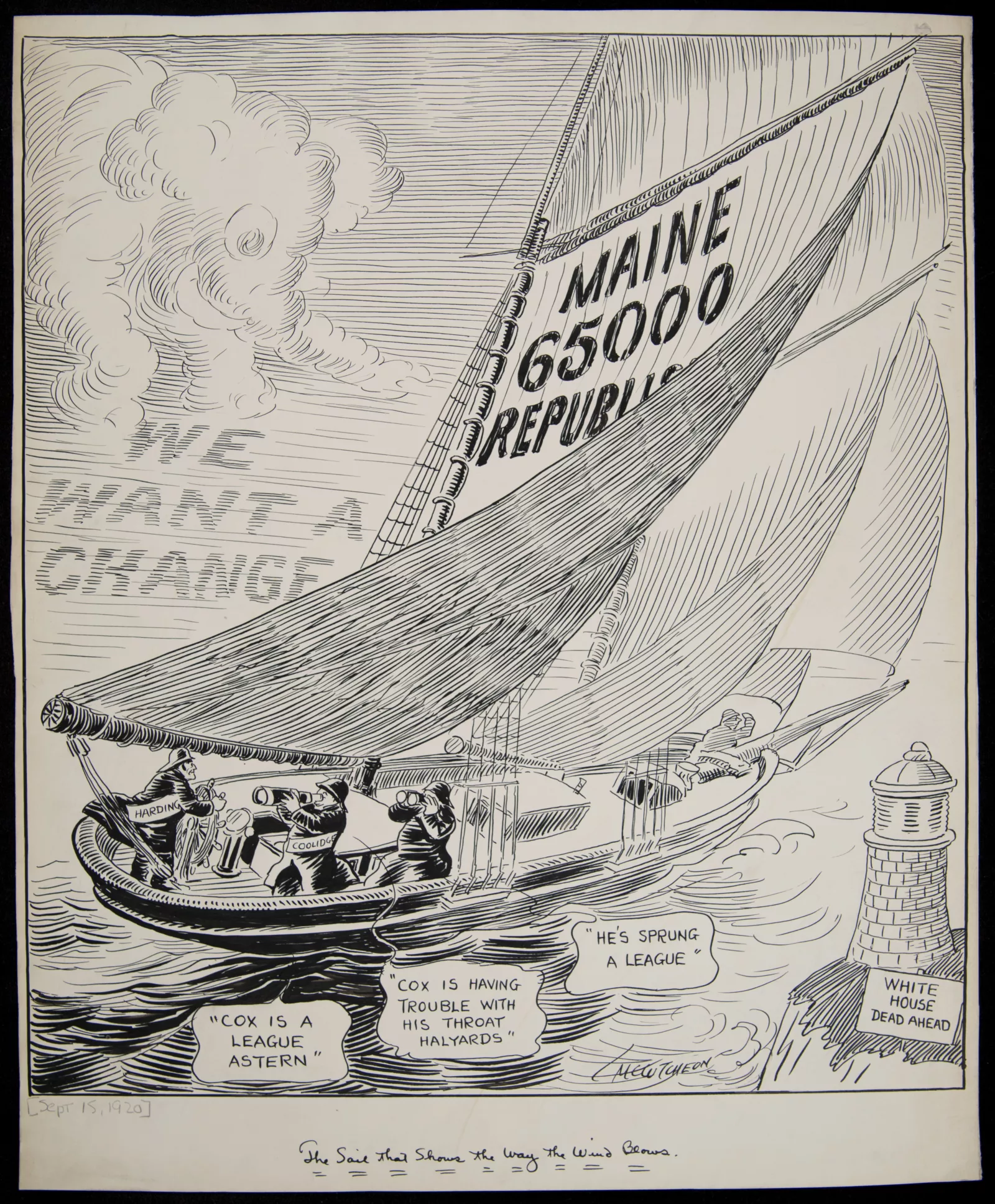“On the 1920 Campaign Trail” is a series of blog posts documenting the 1920 election season. Paul Durica, the Newberry’s former Director of Exhibitions and curator of Decision 1920: A Return to “Normalcy,” will spend the next few months reporting and commenting on the campaigns of Warren G. Harding (Republican), James M. Cox (Democrat), and Eugene V. Debs (Socialist).
Paul will track the ups and downs building up to the election, as the candidates appeal to voters during a time that parallels our own: barely removed from a global pandemic and riven by unrest around racial and economic inequities.
With little more than two months to go before election day, the campaign of Republican Warren G. Harding announced that the candidate would leave the front porch of his home in Marion, Ohio to take his message of a “return to normalcy” directly to voters in cities on the East Coast and the Midwest.
Throughout the summer, crowds of supporters from around the country had traveled to Marion to hear the candidate speak, recalling the campaign of the last Ohioan to occupy the White House, William McKinley.

On the same day as the imminent departure from the front porch was announced, Harding greeted a delegation of 600 businessmen from Chicago who agreed with his conclusion that the administration of President Woodrow Wilson had “spoken of American business as if it were a large and selfish interest seeking special privileges.” The candidate declared, “Let us put an end to holding success to be a crime.”

While Harding prepared to leave Marion, the Democratic candidate and fellow Ohioan, Governor James M. Cox, continued with his journey by rail through the western states.
Speaking in Portland, Oregon on September 13, Cox had to persuade a skeptical crowd that as president he would uphold national prohibition despite his personal opposition to it—as evidence he pointed to his enforcement as governor of Sunday closures of bars and saloons, something desired by religious leaders and temperance advocates, for the first time in Ohio’s history. Cox blamed local newspapers for foregrounding the “liquor question” as a distraction from the “great moral issue of peace through the league of nations.”
That same day, voters in Maine went to the polls to choose their next governor and congressional delegation. Cold weather and the fall harvest meant that the state held elections for these offices earlier than the rest of the nation. Since at least the 1840s Maine had served as a bellwether, with the political party that won the Governor’s Mansion foreshadowing the party that would capture the White House in November, leading to the popular saying, “As Maine goes so goes the nation.”

With women voting for the first time in the state, the Republican candidate bested the Democratic candidate by over 65,000 votes. The Harding campaign used the results to predict a coming landslide while the Cox campaign pointed out that the state had long been solidly Republican.
About the Author
Paul Durica is the former Director of Exhibitions at the Newberry.